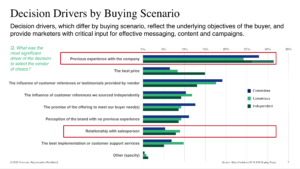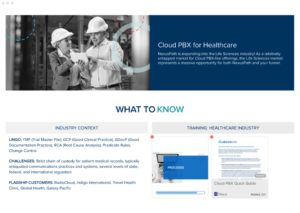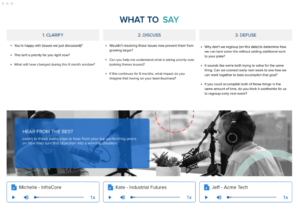To sustain and even grow in today’s business landscape, companies have to provide real value to retain existing customers and engage cautious buyers. That’s where revenue enablement comes in.
Forrester defines the goal of revenue enablement as ensuring that all customer-facing roles possess the skills, knowledge, assets, and process expertise to maximize every buyer or customer interaction. For today’s B2B organizations, customer retention and expansion is a top priority as we navigate these unprecedented times.
In our quest to help enablement teams better understand how to approach revenue enablement, we partnered with Forrester to explore how to provide actionable tips to increase efficiency in sales and marketing.
Start with Customer Experience in Mind
Forrester reports that B2B buyers average 17 interactions in completing a purchase, and the number of interactions increases as buying complexity increases. Selling is more complex than ever before, which means sales and customer success teams have to be prepared to exceed buyer expectations at every turn.
When respondents were asked what was the most significant driver of the decision to select their vendor, previous experience with the company was the number one answer. Enablement must go beyond sellers and also apply to all customer-facing roles to ensure expansion and renewal income. Customer relationships should be considered a marathon and not a sprint if you hope to win the long game.

Customer insights such as these are also extremely valuable because they give your marketing team critical input for effective messaging, content, and campaigns. With a better understanding of customer motivations, your entire go-to-market team can become more knowledgeable and march to the beat of the same customer experience drum.
Organizations with advanced capabilities around revenue enablement are more likely to outperform those taking a siloed approach to optimizing the customer experience.
Map Competencies and Align Assets
To effectively optimize customer experience across your entire revenue team, customer experience must inform the way you provide services, support, and interactions to customers and buyers. That means mapping competencies and understanding what skills, knowledge, and process expertise are required of these teams.
Once these competencies are established, it’s time to align them to actionable guidance for your revenue teams. You will need to tell your sellers and customer success reps what they need to know, say, and show for specific customer interactions.
What to Know
The goal: Provide revenue teams with education and situational awareness for a given scenario before they interact with a buyer or customer. Clearly explain why this information matters and for which audience.

What to Say
The goal: Prepare your revenue teams to have an effective conversation with the prospect or customer through talking points, questions to ask, call recordings, and customer stories. Create different sections for more granularity where necessary, including by role, industry, company news, or persona.

What to Show
The goal: Provide your revenue teams with the most relevant and effective content to engage the customer before, during, or after the meeting — whitepapers, reports, case studies, proposals, email templates, and demo videos.

Given a clear understanding of what competencies are expected of them and how to execute, your revenue teams are prepared to effectively engage customers and prospects.
Elevate Customer Experience to Ensure Tomorrow’s Success
In a world full of uncertainty, you can rest assured that one thing has remained the same — people do business with people who provide value.
To learn how organizations are driving success through revenue enablement, watch our webinar, How Revenue Enablement Can Deliver Business Results in Any Economy, now.




